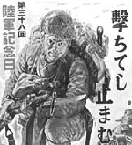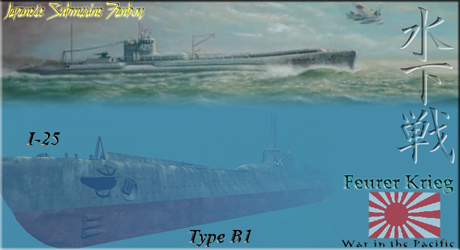Cuttlefish
Posts: 2454
Joined: 1/24/2007
From: Oregon, USA
Status: offline

|
May 1, 1945
Location: 60 miles southwest of Marcus Island
Course: South
Attached to: TF 21
Mission: Surface combat
System Damage: 0
Float Damage: 0
Fires: 0
Fuel: 475
Orders: Proceed south and raid enemy shipping
---
Four oilers and a trio of Matsu-class escorts rendezvous with Yamamoto’s task force as promised. The refueling goes slowly but smoothly, even though one destroyer has its bow swept sideways by a surprise wave which parts the fueling hose and makes an oily mess out of the ship's foredeck.
Captain Ishii is happy it is not his ship that has suffered this embarrassment. In fact it feels a bit like the old days, he thinks to himself. The combat ships are refueling before proceeding into enemy held waters while nearby a carrier force waits nearby. In fact, however, the four oilers and their meager escort probably represent the entire long-range refueling capacity of the Imperial Japanese Navy. And the carrier force consists of a single untested carrier. This rather puts the lie to the illusion that these are like the glory days of old.
Ishii chooses not to examine the facts too closely, however. There is a job to do and one must focus on it instead of on the state of the war. Tomorrow they will move south into the enemy’s sea lanes. Once there they must be prepared to encounter almost anything.
---
It has taken Nanami a full day to cover the last few kilometers to her home. She is behind American lines now and twice she has had to hide from patrols. She has long since been forced off the road and into the hills, and from there she can see many American troops along with trucks, a few tanks, and many odd-looking boxy cars moving north. There is even a little traffic moving south.
The American patrols do not confine themselves to the road, of course. But Nanami grew up in these hills and has so far been able to escape being seen. But her progress has been slow, agonizingly slow. And she is tired and hungry, though she has been able to find enough water, and heartsick with the horrors that she has seen.
Finally, however, she has reached the top of the hill overlooking the ruins of her father’s cottage. She peers down from a notch in the hilltop screened by brush , for she is too much her father’s daughter to skyline herself. She also knows that her white kimono is not good garb for sneaking around, even though it is dusty and filthy and spotted with dried blood. But shedding it seems to her to create more problems than it might solve.
She peers and down and is dismayed by what she sees. The shell of the cottage swarms with American soldiers. It seems to be some kind of command post. There are tables with maps and a radio and from somewhere the smell of cooking food wafts uphill on the onshore breeze. Nanami’s stomach growls so loudly she has the absurd fear that the soldiers walking to and fro below her might hear.
Unlike most of her countrymen Nanami does not regard all Americans as demons. She has met two of them and found them to be gentlemen, though the one named Jack obviously took approving note of her looks. And her husband has told her that in general they are trustworthy. Still, Nanami has few illusions about soldiers of any nation and what they are capable of when stressed by combat.
There is no one near the opening to the cellar. Nanami knows that getting there unseen will be very difficult but she has to take the chance. Despite her great fear she slowly begins to crawl downhill, using boulders and the thick brush for concealment.
She makes it almost halfway before she is seen. The marines below her are not careless men. The Japanese have eliminated the careless ones long since with Darwinian efficiency. While the real fighting is to the south there are enough snipers and infiltrators here to keep the men on their toes. One soldier calls out a warning as he raises his rifle and fires several shots up the slope.
A bullet clips twigs in front of Nanami’s face, another kicks dirt in her face, and a third grazes the top of her right shoulder. She cries out in fear and pain and scrambles behind a nearby boulder.
---
“Did you get him?” one soldier asks Turner, the man who fired the shots. Turner shrugs, not taking his eyes off the hillside.
“Maybe,” he says. Several men spread out and start up the hill, weapons at the ready.
“Him?” says another man. “That sounded like a woman to me. Wearing white, too. What kind of Jap soldier wears white?”
“Good way to get shot,” agrees Turner. He begins to worry a little. Anyone creeping up on them like that has got to be an enemy, which means shoot first and ask questions later. But that did sound like a woman’s scream, or a girl’s. He too starts up the hill.
Two men cover the boulder from in front while others begin to carefully work their way around the flanks. Turner comes up alongside the two men in front.
“Come on out,” he yells. “Come out with your hands in the air!”
“Hell, just toss a grenade back there,” grumbles one of the other men.
“Shut up,” says Turner amiably. He is a big man. The other marine shuts up.
“Hello,” comes a woman’s voice from behind the boulder. “How are you today?” This, though the marines don’t know it, is one of the few English phrases Riku had time to teach Nanami. The voice is high and clear even though the person behind it is obviously frightened.
“I’ll be damned,” says the man who suggested tossing the grenade. He surreptitiously hangs the grenade he has been holding back on his belt.
“I am fine,” calls Turner amiably. “How are you?” There is a pause.
“My name is Nanami Ariga,” comes the voice. “Do you think it will rain?” There are a few chuckles from the assembled marines and weapons are lowered, though not put away.
“She doesn’t understand a damned thing I’m saying,” guesses Turner, accurately. The voice makes him think of his own younger sisters. “Someone go and get Hayakawa.” Hayakawa, a Japanese American from Hawaii, is the unit’s interpreter.
It takes time for Hayakawa to get there and more time to coax the young woman out from behind the rock. In the days and weeks to come Turner and the others will see far too many dead civilians. At particularly bad times they will sometimes think of the pretty young girl they saved, the one who came out from behind a boulder with her hands raised, chin lifted bravely though she was obviously frightened, the one who said in clear although heavily accented English, “Never draw to an inside straight! May I pour you some tea?”
|
 Printable Version
Printable Version
























 New Messages
New Messages No New Messages
No New Messages Hot Topic w/ New Messages
Hot Topic w/ New Messages Hot Topic w/o New Messages
Hot Topic w/o New Messages Locked w/ New Messages
Locked w/ New Messages Locked w/o New Messages
Locked w/o New Messages Post New Thread
Post New Thread